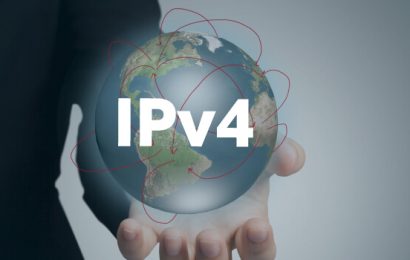
Working on actual use cases being implemented in many industries and gaining a thorough understanding of the technology are both facilitated by blockchain certification. A blockchain certification program includes generating use cases for a specific situation and project evaluation. But before digging deep into blockchain certifications, let’s understand what exactly blockchain is.
What Is Blockchain?
Blockchain is currently regarded as one of the most revolutionary technologies since it is changing the way we communicate, do business, and share information. Blockchain experts and many other technologists concur that this technology will be the most revolutionary in the ensuing ten years.
Finance, supply chain, healthcare, logistics, and many more industries are now closer to transparency, independence from middlemen, and increased efficiency thanks to blockchain’s decentralization concept.
Businesses are now adopting blockchain, government organizations, and even startups, in addition to the IT industry’s biggest players. In fact, they prefer credentialed experts to non-credentialed peers and are searching for Certified Blockchain Experts.
With the advent of blockchain technology, it would be accurate to state that our digital economy has undergone a complete transformation. Large firms like Yahoo, Amazon, Google, and many more that adapted to the technology to become global leaders and change the world from what it was and used to be were the main beneficiaries of these developments.
Blockchain technology was really created as a result of cryptocurrencies. This technology developed from the brains of cryptocurrencies like Bitcoin, which surfaced in the wake of the 2008 global financial crisis and stock market meltdown.
Despite being created for financial transactions, technology has advanced quickly, infecting almost every industry, including insurance, banks, stock markets, healthcare, asset, and property tracking, real estate divisions, smart contracts, and much more.
Two blockchain technologies are currently significant in the global context:
- Bitcoin Blockchain: Designed to offer secure and transparent accounting of virtual Bitcoin currencies, it made cryptocurrency trade and money transfers decentralized, secure, and transparent.
- Ethereum Blockchain: This blockchain offers programming logic in addition to being identical to the Bitcoin blockchain. As a result, it monitors the digital activity of accounts, transactions, etc., and offers its consumers a customizable platform.
The Blockchain is Evolving
The following grading criteria led to the designation of blockchains as revolutionary.
- The ability to trade cryptocurrency increased.
- The law governs all transactions:
- The coding that makes up the blockchain forms and controls it. It cannot be altered or tampered with once it has been recorded. Additionally, the public can access digital records, guaranteeing a secure, unchangeable recorded transaction.
- There is no third-party governmental, legal, or regulatory involvement.
- Transactions without the intervention of institutions or banks were welcomed as long as there was trust and records between the participants.
- Data is retained indefinitely.
- Every transaction was tracked and verified using blockchain technology and public record verification.
- Your private key is the only way to gain access.
- Using a trustworthy site for exchanging currencies guards against hackers and guarantees secure transactions.
- The recipient address is essential:
- Once you transfer to the incorrect party in a digital, decentralized system, there can be no chargebacks or support interventions.
- The potential uses of tokens for transactions, exchanges, sales, and purchases of virtual goods.
- The accompanying digital wallet is password-protectable and has increased security.
Advantages Of Pursuing A Blockchain Certification Program
There are many reasons to learn it and acquire a blockchain certification, especially since this technological advancement is both futuristic and potentially significant. Several factors influence enrolment in blockchain technology courses and provide benefits for earning a blockchain certification, including
Infrastructure for blockchain technology is straightforward and does not require a wide variety of infrastructure. Instead, both of these systems rely on distributed ledger technology and have infrastructure that is durable, universal, and more advanced than the competition while yet being compatible with a wide range of other activities. As a result, this technology modifies how data is distributed among distinct blocks.
When it comes to investments and returns at the moment, the flexible futuristic technology can be considered to be somewhat lukewarm. But, at the same time, this gives the ideal framework for futuristic growth. Adopting this technology would result in increased adaptability, novel capabilities, and profitable prospects that may be used in upcoming markets.
There is a disruption in the blockchain. This is mostly due to the fact that it would encourage transactions to occur directly between two parties, obviating the need for a middleman. As a result, many market participants improved their abilities and level of play.
The blockchain is still in its early stages and is only now used for financial transactions. There are currently a lot of opportunities for it to expand into different businesses and verticals.
The Uses of Blockchains
- Study blockchain technology to make use of its amazing characteristics in the
- Banks, stock markets, real estate transactions, and other financial sectors that require unchangeable records
- Preserve copyright in the arts, entertainment, and other sectors and protect recording rights, trademarks, and patents.
- Enforceable agreements, records of registration, transfer certificates, etc.
- Industries include insurance, healthcare, and subsidy distribution.
Types of Developers
You can enroll in blockchain technology training programs as a tech enthusiast to become a Core Blockchain Developer or a Blockchain Software Developer. The creation of architectures, protocols, decisions, consensus designs, and designs are all tasks that core developers handle. Software developers deal with the protocol and architecture used to build blockchain-enabled applications.
Technical Skills Required For Blockchain Certification
Among the abilities picked up in a blockchain certification program are
- For logical interpretations and quantification, coding abilities are crucial.
- Asynchronous cryptography and associated techniques include hash functions and digital signature generation.
- The Bitcoin whitepaper lays out the architecture of blockchains.
- Procedural languages for relational databases and programming include OOPs, C, JavaScript, and C.
- Data structures such as Stack, Merkle, and Patricia trees, sophisticated cryptography, Queues, LinkedList, Tree, and Hedera HashMaps, among others.
- Installing and using the Truffle suite on Mac, Windows, and Ubuntu are examples of smart contract enablers.
- HashGraph, Hyper Ledge, Ethereum, EOS, and other platforms and frameworks.
- Development of Smart Contracts, including their features and specialized network languages like Viper, Chaincode, and Solidity for Ethereum.
- Decentralized application development, including front- and back-end web development, handling APIs, requests, Dapps-based interactive GU interfaces, etc.
Wrapping Up
You can also head to Hero Vired, which is one of the most popular platforms that offer the best blockchain certification program. One can easily enroll in their sought-after fintech certifications seamlessly and polish their skills easily.
Visit their website, connect with their expert teams and start your upskilling journey today.








